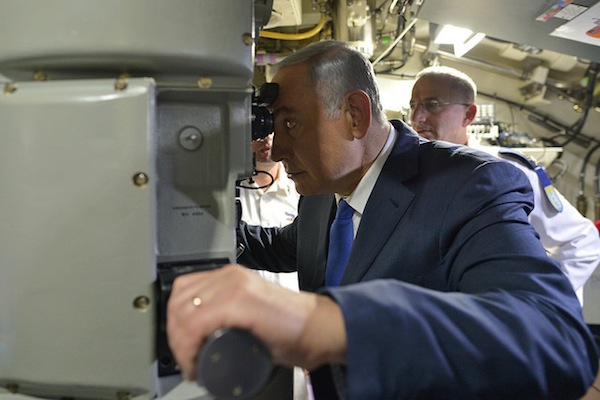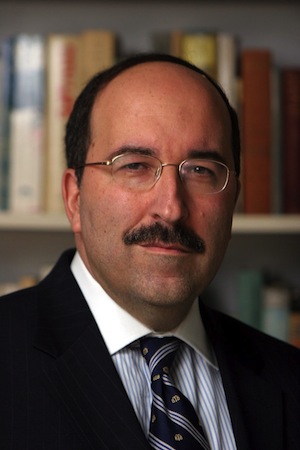The former head of the Mossad says Israel no longer faces existential threats, while one of Netanyahu’s top advisors calls the Sunni Arab states of the Middle East ‘Israel’s allies.’

If there’s one thing most Israelis can agree on, it is that the world is against us. At the very least, so it goes, Israel is surrounded by enemies on all fronts, and the Jewish state’s existence is always in peril. This mantra was seared into the fabric of the Israeli consciousness from the founding of the state and persists until today.
Perhaps that is why recent statements by top-brass Israeli officials come as such a surprise. In a recent interview with Israeli newspaper Ma’ariv, outgoing Mossad head Tamir Pardo stated that while Israel still faces security challenges, it no longer faces any existential threats.
While warning that the nature of the challenges Israel must face has shifted dramatically in recent years, Pardo conceded: “Everyone knows Israel is a very strong nation. This is no longer a time when Israel, as a young state, is forced to deal with existential fears.”
Pardo isn’t alone in challenging what is just plain common sense for most people. In July of last year, Dore Gold, the director general of Israel’s Foreign Ministry and a close confidant of Prime Minister Benjamin Netanyahu, gave a presentation to the Conference of Presidents of Major American Jewish Organizations in New York, in which he labeled Sunni Arab states “Israel’s allies.”
Gold used the term twice in the presentation, which focused on the shortcomings of the Iran nuclear deal: “What we have is a regime on a roll that is trying to conquer the Middle East,” Gold said of Iran, “and it’s not Israel talking, that is our Sunni Arab neighbors — and you know what? I’ll use another expression – that is our Sunni Arab allies talking.”
Thus, while Dore was warning of one existential threat — a nuclear Iran — he was essentially rebutting the long-held view according to which the Arab states of the Middle East are actively working to annihilate Israel.
And while Gold did not specify which Sunni Arab nations he was referring to, his public meeting with retired Saudi general and former advisor to the Riyadh government, Anwar Eshki, at the New York-based Council on Foreign Relations in June is a sign that the former is putting his money where his mouth is. Saudi Arabia may pay lip service to the Palestinian struggle by refusing to recognize Israel — and thereby perpetuating such absurdities like forbidding its national soccer team from playing in the West Bank — but in the arena of an ever-polarized Middle East, where Sunni states are vying for regional power against Iran and its proxies, Israel’s relationship with the House of Saud is all but symbolic.
Other Gulf States such Qatar and Oman allowed Israeli trade missions to be opened on their territory during the mid-1990s but they have since been closed due to protests over Israel’s treatment of Palestinians.
In November of last year, it was revealed that Israel would open a new delegation in Abu Dhabi, capital of the United Arab Emirates, which would be accredited to the International Renewable Energy Agency, based in the city. The UAE was revealed last year to be allowing regular semi-covert flights between the two countries. It was later revealed that Abu Dhabi has a mass civil surveillance system installed by an Israeli-owned company. However, whether or not these fledgling links will eventually blossom into normalized relations between Israeli and the Sunni states is yet to be seen.
Regardless of what the future may hold, Pardo and Dore’s remarks are telling, especially when considering just how anathema they are to the worldview promulgated by Prime Minister Benjamin Netanyahu, who misses no opportunity to remind Israelis that they are under threat of extinction at any given moment. We must also remember that Israelis are no more prone to paranoia than any other group, and that years of wars and terrorism have only perpetuated the feeling of being surrounded, not to mention detested.
The logic of Netanyahu’s fear-mongering, therefore, works as much internally as it does externally: from the Arab hordes being bused to polling stations to the shameless comparisons between Palestinians and ISIS to years and years of saber-rattling against the Islamic Republic — Netanyahu ensures that the fears that haunt Israelis beyond its borders are also the ones lurking just around the corner.
Whether Pardo and Dore are right in their assessment, then, is of little consequence. In a country that has given Netanyahu a clear mandate to rule, fear — no matter how justified or exaggerated — is the most valuable currency.



